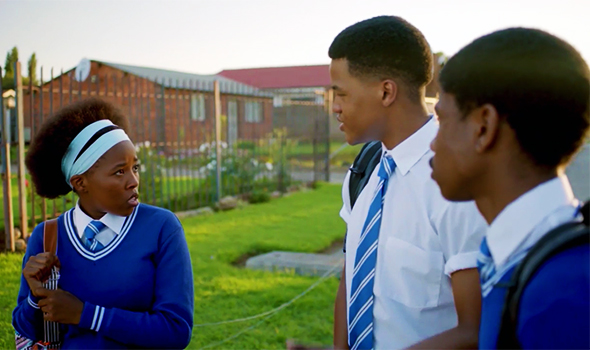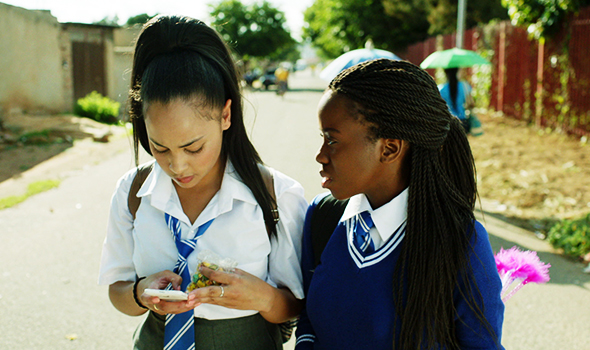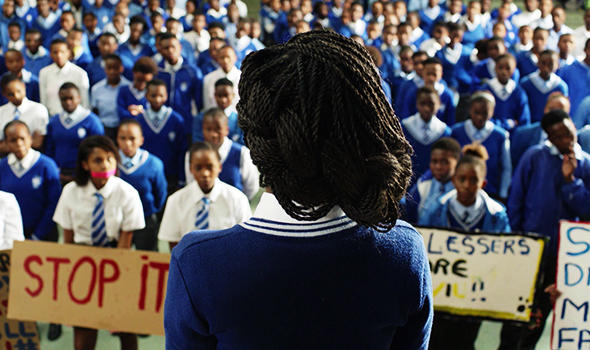Why Everyday is Womxn's Day…
News
09/08/2017

Days created to celebrate womxn and commemorate all that they’ve offered the world are sometimes met with disdain…
*Womxn, rather than women, is an inclusive term used by some that allows individuals to take ownership over their identity, and not to be defined by male language… Whether it’s International Womxn’s Day or Mother’s Day, many people will ask why womxn need a whole day for themselves?
National Womxn’s Day
South Africa’s National Womxn’s Day commemorates the 1956 march, in which 20,000 womxn protested an Apartheid law that required Black people to carry pass books – yet even when we celebrate this day, so many other things overshadow the power and greatness of the womxn who joined together to protest unjust laws.
When one looks at the way the day is commemorated now, few would think of its historical significance. The imagery and names of Lilian Ngoyi, Sophia Williams, Rahima Moosa and Helen Joseph’s may be used, but is the impact of this momentous day clearly evident in our recent celebrations? How does one commemorate without knowing the truth in the history, without looking at our present and more so looking into the future to figure out what the way forward is?
In a world where womxn seem to be in more danger than ever before, where we are constantly fighting for equality, dealing with sexism and violence in our everyday lives, it becomes increasingly difficult to try and shine a positive light.
Marketing campaigns have turned this one day into pink balloons, massage and nail-care discounts as well as messages that remind people of other genders to celebrate us for the roles we play in their lives – rather than celebrating us in our own right. They forget how complex and dynamic we are as womxn. How impactful we are. And also what we have to deal with on a day-to-day basis.
A Time to Reflect
Despite all these challenges that still face womxn, these days provide an important opportunity for us to reflect; and what could be better than noting how history paved the way for inspirational, powerful womxn to do vital work daily.
Let’s commemorate the womxn that do all they can in their own lives to ensure we all have the futures we deserve. That put in work every day to make a positive change, as well as those in fields that have been historically closed off to womxn, such as politics, media, aviation, literature, law, business, art or STEM (Science, Technology, Engineering and Maths).
Womxn like Leymah Gbowee, a Liberian peace activist and one of three African womxn to be awarded the Nobel Peace Prize. Eritean-American Haben Girma, who is Harvard Law School’s first Deaf-blind graduate and who is passionate about fighting for disability rights. Omobola Johnson, a Nigerian powerhouse who’s working on getting more girls to participate in the ICT sector.
Womxn like Wilma Newhoudt-Druchen, who is the first and only Deaf MP in South African Parliament. Members of The Trans Collective in South Africa, whose work focuses on highlighting the overlaps of intersectionality (which highlights how different types of discrimination interact) in student movements in South Africa. The work done by the Sex Worker’s Education and Advocacy Taskforce in creating a clinic to serve the healthcare needs of sex workers in Cape Town.
Here’s to celebrating womxn like Thuso Mbedu, Mohau Cele, Samke Mokhoba and Stephanie Sandows from MTV Shuga. Womxn who are part of the creation of content that represents our lives as African womxn; how we live, think and experience the world. Touching on gender-based violence, womxn empowerment, sexual health and pleasure, transactional relationships as well as exploring our own sexualities, these womxn allow young African girls to see themselves on TV, living lives they aspire to realise as well as dealing with relatable issues.
They’re allowing us to see the impact of Black Girl Magic and how we attempt to find joy in a world that makes it incredibly difficult to do so. More so, they allow us to revel in our own slay every day, rather than once or twice a year
The Fight Continues
While we acknowledge and celebrate the incredible work that these womxn do, there’s always more work to be done. More celebrations of all types of womxn; those who are working class, transgender, disabled and underrepresented are vital. Let’s continuously highlight and hold up how crucial womxn are to every sector that we’re involved in and are making a change in.
Let it also be known that you do not have to be exceptional to be celebrated. How do you bring about change in your personal life? Celebrate those. And the fact that you, yes you, are living and surviving in a world that’s worked so hard to traumatise and stifle you. Let’s celebrate you!











comments
Log In or register to comment